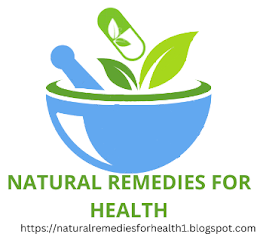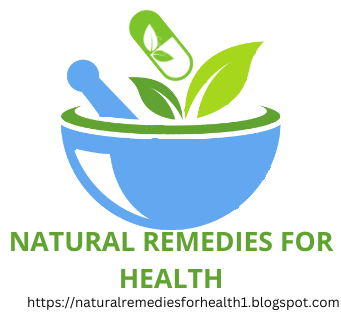Natural Remedies for Acne & Clear Skin the Natural Way
1. Introduction
Acne occurs when hair follicles become clogged with oil, dead skin cells, and bacteria, resulting in inflammation and the formation of pimples, blackheads, and whiteheads. While hormonal changes, genetics, and lifestyle factors can contribute to acne, using the right skincare products and following a healthy lifestyle can make a significant difference.
2. Understanding Acne
To effectively address acne, it's essential to understand its root causes. Hormonal fluctuations, excess oil production, clogged pores, and bacterial overgrowth are common factors. By targeting these underlying issues, natural remedies can help prevent and reduce acne breakouts.
3. The Benefits of Natural Remedies
Natural remedies offer several advantages over conventional acne treatments. They are often gentler on the skin, have fewer side effects, and provide additional benefits such as nourishing and rejuvenating the skin. Moreover, natural remedies focus on treating the root causes of acne rather than just addressing the symptoms.
4. Tea Tree Oil: Nature's Acne Fighter
Tea tree oil is a powerful natural remedy for acne due to its antibacterial and anti-inflammatory properties. It helps kill acne-causing bacteria, reduce inflammation, and unclog pores. Dilute tea tree oil with a carrier oil like jojoba oil before applying it directly to the affected areas for best results.
5. Aloe Vera Gel: Soothing and Healing Properties
Aloe vera gel is known for its soothing and healing properties. It helps calm irritated skin, reduce redness, and promote the healing of acne scars. Apply a thin layer of pure aloe vera gel to the affected areas and leave it on overnight. Rinse off in the morning for clearer and healthier-looking skin.
6. Witch Hazel: A Natural Astringent
Witch hazel acts as a natural astringent, helping to remove excess oil, tighten pores, and reduce inflammation. Apply witch hazel using a cotton pad to gently cleanse the skin and minimize acne breakouts. It is important to choose alcohol-free witch hazel to prevent excessive drying of the skin.
7. Apple Cider Vinegar: Balancing pH Levels
Apple cider vinegar is a popular natural remedy for acne due to its ability to balance the skin's pH levels. It has antimicrobial properties that help kill acne-causing bacteria and reduce excess oil production. Dilute apple cider vinegar with water and apply it as a toner to the skin using a cotton pad.
8. Honey: Antibacterial and Moisturizing Effects
Honey is a natural ingredient with antibacterial properties that can help fight acne-causing bacteria. It also moisturizes the skin and promotes healing. Apply raw honey to the affected areas, leave it on for 10-15 minutes, then rinse off with warm water for smoother and clearer skin.
9. Turmeric: Anti-Inflammatory and Antioxidant Powerhouse
Turmeric contains curcumin, a compound with potent anti-inflammatory and antioxidant properties. It can help reduce acne inflammation and prevent oxidative damage to the skin. Create a paste by mixing turmeric powder with water or honey and apply it to the affected areas. Leave it on for 10-15 minutes before rinsing off.
10. Green Tea: Detoxifying and Calming Skin
Green tea is rich in antioxidants that help detoxify the skin and reduce inflammation. Brew a cup of green tea, let it cool, and use a cotton ball to apply it to the skin or freeze it into ice cubes for soothing inflammation and redness. You can also use green tea as a gentle face wash.
11. Essential Oils for Acne Treatment
Certain essential oils have proven benefits for acne treatment. Tea tree oil, lavender oil, and rosehip oil are known for their antibacterial and anti-inflammatory properties. Dilute essential oils with a carrier oil and apply a small amount to the affected areas or add them to your skincare routine.
12. Dietary Considerations for Clear Skin
In addition to topical remedies, a healthy diet plays a crucial role in promoting clear skin. Avoiding processed foods, sugar, and dairy products while incorporating plenty of fruits, vegetables, and foods rich in omega-3 fatty acids can help reduce acne breakouts and support overall skin health.
13. Skincare Routine for Acne-Prone Skin
Establishing a proper skincare routine is essential for managing acne-prone skin. Cleanse gently, exfoliate regularly to remove dead skin cells, use non-comedogenic moisturizers, and protect your skin from the sun with a broad-spectrum sunscreen. Avoid excessive scrubbing or using harsh products that can irritate the skin.
14. Conclusion
While acne can be a persistent and frustrating condition, natural remedies provide effective alternatives to conventional treatments. Incorporating ingredients like tea tree oil, aloe vera gel, witch hazel, apple cider vinegar, honey, turmeric, green tea, and essential oils into your skincare routine and adopting a healthy lifestyle can help you achieve clearer, healthier skin naturally.
15. FAQs
Are natural remedies as effective as conventional acne treatments?
Natural remedies can be highly effective for many individuals, but results may vary. It's important to find the right combination of remedies that work best for your skin type and acne severity.
How long does it take for natural remedies to show results?
The time it takes to see results with natural remedies can vary. Consistency is key, and it may take a few weeks or even months before significant improvements are noticed.
Can natural remedies cause skin irritation?
While natural remedies are generally gentler on the skin, some individuals may experience irritation or allergic reactions. It's essential to patch test new remedies and discontinue use if any adverse reactions occur.
Can natural remedies be used alongside conventional acne treatments?
It's best to consult with a dermatologist or healthcare professional before combining natural remedies with conventional












